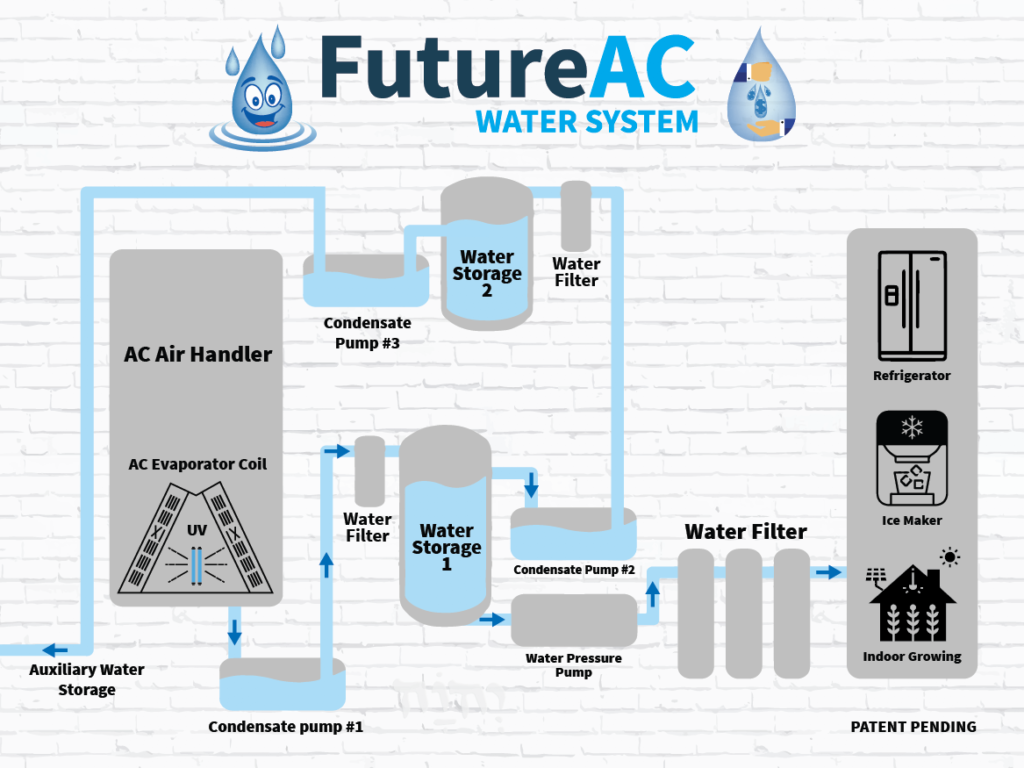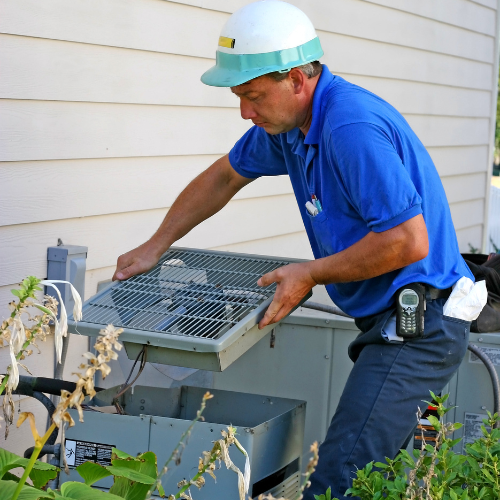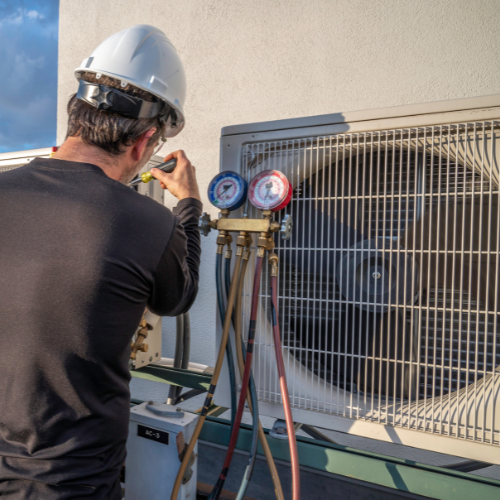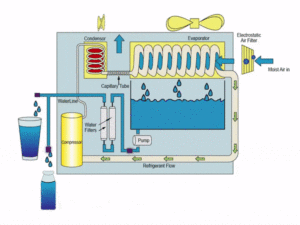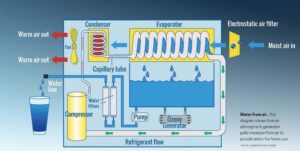The Great South Florida Debate:
Traditional Air Conditioning Vs. Mini Split
The purpose of this blog post is to provide an in-depth comparison of traditional air conditioning (AC) units and mini split AC units. These two types of AC systems have distinct differences in terms of cost, installation, maintenance, and energy efficiency. By understanding these differences, homeowners in Broward, Palm Beach, and Dade County can make an informed decision on which type of AC system is best suited for their needs. The blog post will cover the basics of traditional AC units and mini split AC units, and then compare the two systems in various aspects. By the end of this blog post, readers will have a clear understanding of the pros and cons of traditional and mini split AC units, and be able to make an informed decision on which type of AC system to install in their home or building.
Traditional AC Units
Explanation of how traditional AC units work:
Traditional AC units, also known as central air systems, consist of two main components: an outdoor unit and an indoor unit. The outdoor unit contains the compressor, condenser, and expansion valve while the indoor unit contains the evaporator. The two units are connected by refrigerant lines. The HVAC unit works by drawing in hot air from the inside of a building, cooling it, and then distributing it back into the building through a network of ducts.
Advantages of traditional AC units:
- Lower cost: Traditional AC units can be more cost-effective to purchase and install compared to mini split AC units. This is especially true for larger buildings or homes that have existing ductwork in place.
- Compatibility with existing ductwork: Traditional AC units can be easily integrated into existing ductwork, which can save on installation costs.
- Easy to service: Traditional AC units are relatively simple to service, and many HVAC technicians are familiar with them.
- Easy to find replacement parts: Traditional AC units have been around for a long time, so replacement parts are widely available and relatively inexpensive.
- Widely available: Traditional AC units are widely available and can be found at most HVAC supply stores.
- Capable of cooling multiple rooms at once: Traditional AC units are able to cool multiple rooms in a building at once, making them a good option for larger homes or buildings with multiple rooms.
Mini Split AC Units
Explanation of how mini split AC units work:
Mini split AC units, also known as ductless systems, consist of two main components: an outdoor unit and an indoor unit. The outdoor unit contains the compressor, condenser and expansion valve while the indoor unit contains the evaporator. The two units are connected by a small refrigerant line and a conduit that houses the power cable, drain and suction tubing. The AC unit works by drawing in hot air from the inside of a room, cooling it and then distributing it back into the room. Each indoor unit can be controlled separately, allowing for temperature control in multiple rooms or zones.
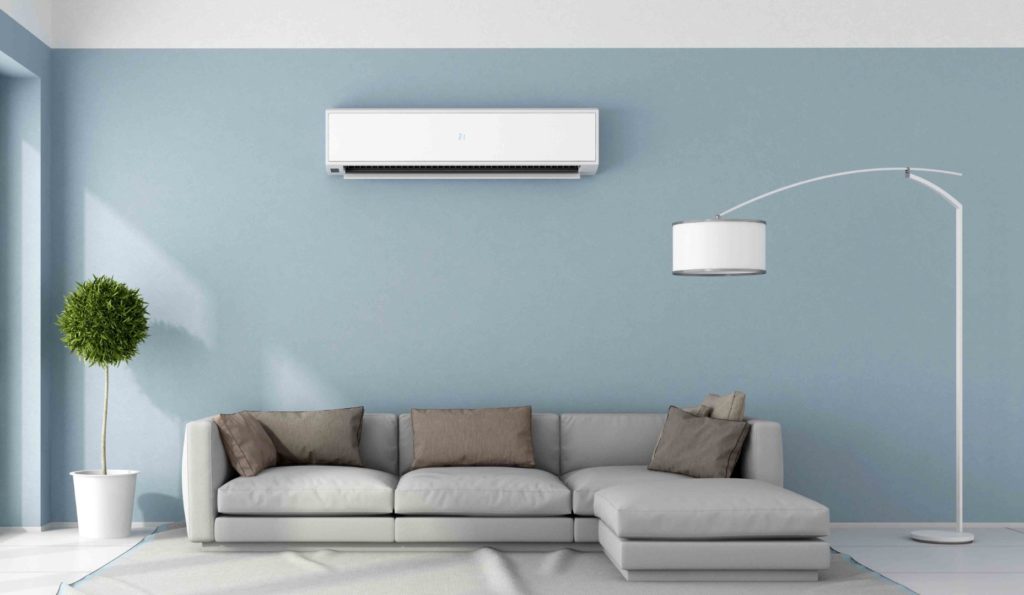
Advantages of mini split AC units:
- Energy efficiency: Mini split AC units have a high SEER (Seasonal Energy Efficiency Ratio) rating, meaning they use less energy to cool the same amount of space as traditional AC units.
- Flexibility in terms of installation: Mini split AC units do not require ductwork, making them a good option for buildings or homes that do not have existing ductwork or where adding ductwork would be difficult. They also can be used to cool individual rooms or zones, allowing for greater control over temperature and energy usage.
- Quiet operation: Mini split AC units have smaller compressors and indoor units, which results in less noise during operation.
- Sleek design: Mini split AC units have a sleek and modern design, making them a good option for homes or buildings where aesthetics are important.
- Easy to install: Mini split AC units can be easily installed by a professional HVAC technician, and they do not require major renovations.
- Easy to service: Mini split AC units are relatively simple to service, and many HVAC technicians are familiar with them.
Comparison of Mini Split and Traditional AC Units
Side-by-side comparison of the two types of units in terms of efficiency, cost, installation, and maintenance:
Efficiency:
- Traditional AC units typically have a lower SEER rating, meaning they use more energy to cool the same amount of space as mini split AC units.
- Mini split AC units have a higher SEER rating, meaning they are more energy efficient and can lead to lower energy bills over time.
Cost:
- Traditional AC units can be more cost-effective to purchase and install compared to mini split AC units.
- Mini split AC units can be more expensive to purchase and install, especially if there is no existing ductwork in place.
Installation:
- Traditional AC units require ductwork, which can add to the cost and complexity of installation.
- Mini split AC units do not require ductwork and can be installed more easily and quickly.
Maintenance:
- Traditional AC units are relatively simple to service, and many HVAC technicians are familiar with them.
- Mini split AC units are also relatively simple to service, but may require a specialized technician.
How do these systems withstand the South Florida heat?
Florida has a hot and humid climate, which means that air conditioning is an essential part of living there. Mini split AC units are known for their high energy efficiency, which can be beneficial in a hot climate like Florida where air conditioning is used frequently. Mini split AC units also offer greater temperature control in individual rooms or zones, which can be useful in Florida where different parts of a home or building may have different cooling needs.
On the other hand, traditional AC units may be a better option for larger buildings or homes that have existing ductwork in place. Installing mini split AC units in a large building without existing ductwork would require a significant investment in terms of cost and installation time.

It’s also worth noting that Florida is known for its high thunderstorm and hurricane activity, which can cause power outages and damage to outdoor units. In this case, if the outdoor unit of the mini split is damaged it will require the entire system to be replaced, while traditional AC units have a greater chance of repair.
Ultimately, the choice between a traditional or mini split AC unit in Florida depends on factors such as the size of the building, existing ductwork, budget, and personal preferences. It’s recommended to consult with a HVAC professional to determine which type of AC system is best for your specific needs and situation.
In summary, traditional AC units are a good option for larger buildings or homes that have existing ductwork in place and are looking for a more affordable and simpler installation process. Mini split AC units are a good option for buildings or homes that do not have existing ductwork or where adding ductwork would be difficult, and for those who prioritize energy efficiency and flexibility in terms of installation. Whichever you decide on, the good news is that you can still recycle your AC water…. find out more here.
